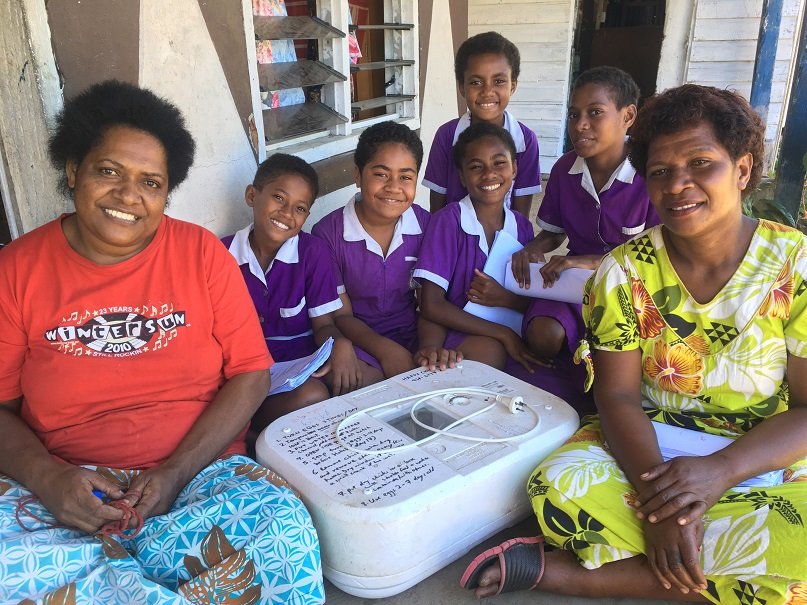By Austin Bowden-Kerby | Director
It has been a hot and very wet summer here in Fiji in the southern hemisphere at the Happy Chicken farm, and the hens are have been on their annual "vacation", not laying eggs so that they will have the resources to change their feathers for new ones (= molting). We closed the hatchery for two months and have just begun to set eggs in the incubators again, as the weather is finally cooler and the hens are gettting back to work laying their precious eggs.
News from Koro Islnd in the Cyclone Winston disaster area:
We sent an incubator to the Nabasovi Women's Group in January along with 90 fertile eggs- which they successfully hatched, and so we sent a second lot of eggs in February, which they also hatched. But in March we unfiortunately did not have enough eggs to send. However, the oldest hens will begin laying in June, and they have retained 20 of the chickens, which will soon become the new breeding flock! The woman's cooperative ageed to turn the incubator over to Senirosi Talei, "Bu Seini", who has good business sense, as she successfully runs the village 'canteen'. Seinirosi will now receive special support to create her own hatchey business, hatching chicks monthly on behalf of the nearby villages.
Thea, the US Peace Corps volunteer supporting the project, will be travelling to Suva soon, to purchase school supplies on behalf of the community, and we will send back with her on th boat 90 fertile eggs for the incubator, starter feed for the chicks, supplemental feed for the breeding flock, and more cuttings of edible feed plants.
With the first lots of chickens sent to Koro, we had to also send many bags of feed, as the vegetation was so badly damaged that the chickens could find little to eat from the land. That was costly and burned up most of the donations, but it was desperate times. Now local chicken feeds are becoming more available, with coconuts beginning to bear again, and mornina cuttings which we sent up with the trainees nearly two years ago, have grown into trees whose leaves make excellent feed when combined with coconut and cassava roots.
Our forging chickens at the farm recently taught us an additional wild plant, which the chickens absolutely love to eat- 'costus' or 'crepe ginger', which turns out to be edible for humans as well- see the photo below. We will now include this plant in the workshops, with one happening at the farm next week for a group of young men from Beqa Island
As local capacity and knowledge of the Happy Chicken methods spreads and increases on Koro, we may need to send an additional incubator to Bu Seine (in red in the photo below), in order to meet the needs of the island's fourteen villages.
Vinaka valkalevu- thank you SO much to the donors and to our helper Thea, and of course to the Nabasovi Women's group for making this all possible.
Project reports on GlobalGiving are posted directly to globalgiving.org by Project Leaders as they are completed, generally every 3-4 months. To protect the integrity of these documents, GlobalGiving does not alter them; therefore you may find some language or formatting issues.
If you donate to this project or have donated to this project, you can recieve an email when this project posts a report. You can also subscribe for reports without donating.

